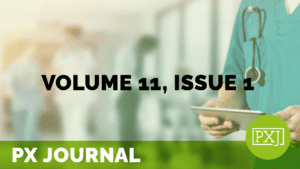Laboratory Literacy: Surveying Lab Result Interpretations of a Local Patient Population
Published November 13, 2024


A patient’s independent interpretation of their medical laboratory data has become an unspoken prerequisite in the current age of medicine. In the outpatient setting, it is anecdotally commonplace for patients to receive their lab results before their physicians, resulting in patients often relying on self-interpretations of their results. This study analyzed the degree to which patients are comfortable interpreting lab results and sought to shed light on the question: How are patients interpreting their laboratory reports? A survey was constructed to include the items from a validated health literacy screening tool, followed by items inquiring about the respondent’s experience and comfort interpreting medical lab reports. The survey then contained five sets of two questions, each asking the respondent to interpret a mock-up laboratory report associated with a disease state and to report their level of confidence in their answer. The survey was distributed to 173 patient advisors, of which 61 completed the survey. There was a statistically significant association between one’s health literacy and one’s confidence in interpreting lab results (p < 0.001). Additionally, respondents with a chronic disease were more confident in interpreting a within-range HbA1c compared to respondents without chronic disease (p < 0.05), although similar comparisons for other lab result types failed to yield statistically significant differences. This study detailed the lessons learned in conducting a health and laboratory literacy survey, a preliminary step towards developing a working knowledge of how patients relate to their lab results.
Related content
-
Innovation & Technology
Acceptability of a New Remote Monitoring Service for Patients with COVID-19 Infection using Wearable BioStickers™: A Mixed Methods Study
Published April 30, 2024

The COVID-19 pandemic saw rapid adoption of telehealth, including remote patient monitoring (RPM). There is limited evidence about how patients and staff experience such services in New Zealand. This study aimed to understand the acceptability of the RPM experience, particularly for Maori and Pacific peoples, and identify strengths, gaps, and limitations to inform future delivery
Learn more -
Innovation & Technology
Game On: Growing a Gaming and Technology Program that Improves Patient Experience
Published July 17, 2025

In this learning bite, a dedicated Child Life Technology Specialist role helped one hospital safely expand gaming, VR, and tech resources for patient experience. By adding safeguards and better support, the program increased entertainment access, protected patient privacy, and boosted satisfaction for kids and families.
Learn more -
Innovation & Technology | Patient Family & Community Engagement
Expanding Access through Telehealth
Published December 7, 2022

This connection call discusses rolling out and supporting successful Telehealth services.
Learn more
